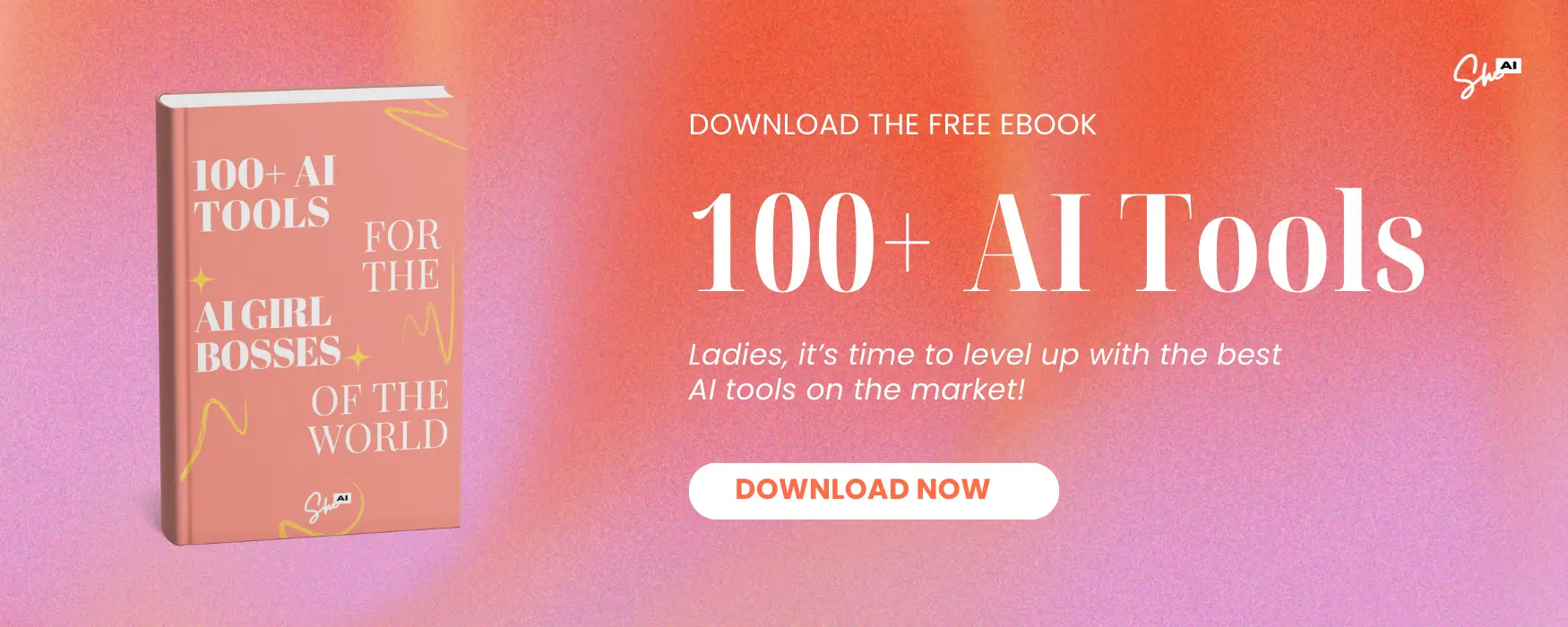The Ultimate Guide to GEO and AEO: Your AI Search Optimization Playbook for 2026
Aug 11, 2025
Hello to all brilliant entrepreneurs and crafty copywriters, you've come to the right place! This article will tackle directly how your customers find your business online. So without further ado, let's dive into the exciting world of Generative Engine Optimization (GEO) and Answer Engine Optimization (AEO), and let's make sure your business shines in this new age!
The rapid transformation happening in search is unprecedented. Small businesses that adapt to AI-powered search in 2025 can gain very relevant competitive advantages that were impossible just two years ago. This comprehensive guide will show you exactly how to position your business as the go-to solution when AI assistants recommend services to your ideal customers.

AI Search Engine Market Share July 2025 - ChatGPT leads with a whopping 82.6% market share (by StatsCounter.com)
The AI Revolution is Here, and It's Changing Everything
Picture this: Your ideal customer is sitting with their morning coffee, asking ChatGPT about the best solutions for their business challenge. Will your company be the one AI recommends, or will you be invisible in this brave new world?
The data tells a compelling story. AI search engines now capture significant market share, with ChatGPT leading at nearly 83% of AI-driven searches. According to GrowthSRC, Google's AI Overviews appear in almost 19% of search results, and here's the kicker - users who encounter AI Overviews click through to traditional results only 8% of the time, compared to 15% for regular searches. But don't panic! 90% of users still click through to cited sources to verify information.
Why is SEO Turning Into GEO and AEO?
To give context about what's to come, let's first mention Search Engine Optimization (SEO), the parent of what are now GEO and AEO. A traditional search engine would index sites and rank them based on the domain authority, keyword relevance, and the number and quality of backlinks pointing to the site.
Now that ChatGPT has taken over search, mama SEO gave birth to two chicks - GEO and AEO. As they're both young and in their formative years, we will see them changing, growing, and further developing in the upcoming years, but in the meantime, by showing up, we have a great opportunity to have our businesses or organizations grow with them. Now, it's time to get to know them better.
Think of Generative Engine Optimization (GEO) as your strategy for getting mentioned by AI assistants when they create responses. It's about making your content so valuable and well-structured that AI models naturally want to cite you as a trusted source.
Answer Engine Optimization (AEO) focuses on getting your content featured as direct answers in search results – those coveted featured snippets and answer boxes that appear at the top of search pages.
The beautiful thing about AI SEO? The strategies mentioned here work hand-in-hand to boost your visibility across both traditional search and AI platforms, and the opportunities are once again huge!
The Numbers Don't Lie: Why This Matters Now
Research from Princeton University shows that GEO methods can boost visibility by up to 40% in generative engine responses. Meanwhile, studies reveal that AI-friendly content structured with FAQ formats and schema markup significantly increases citation rates across platforms like ChatGPT, Perplexity, and Google's AI systems.
The shift is real: Google's market share has dipped below 90% for most of 2025, with AI tools gaining traction among users seeking direct answers. For small businesses, this represents both a challenge and an incredible opportunity to level the playing field.

Practical AI Search Optimization Tips
The tactics listed below are merging traditional SEO with the new AI-powered search tactics that will ensure your business shows up on search engine results pages and on AI algorithms.
1. Master the Art of FAQ Optimization
FAQs aren't just customer service tools; they're pure magnets! Here's how to make them work harder for you:
✅ Answer real questions people ask:
- Use Google's "People Also Ask" section (keep expanding it to learn about other similar topics people are interested in)
- Browse Reddit and Quora in your industry
- Test questions in ChatGPT to see what comes up
✅ Write conversationally:
- Keep answers between 40-60 words initially
- Use natural language, not corporate jargon
- Think about how you'd explain it to a friend
✅ Implement FAQ schema markup:
- Use a schema markup generator
- Add structured data to help AI understand your content
- Test your markup with Google's Rich Results Test
2. Create Original Content and Appear in AI Search
To rank for GEO and AEO, your content needs to travel beyond your website. Here's the game plan:
Platform Strategy:
- LinkedIn Articles: Republish your best content with industry insights
- Medium: Share thought leadership pieces with backlinks to your site
- Industry Publications: Pitch your expertise to relevant trade magazines
- Reddit & Quora: Answer questions authentically (no sales pitches!)
Content Types That AI Loves:
- Step-by-step how-to guides
- Comprehensive comparison tables
- Original research and data
- Case studies with specific outcomes
- FAQ sections within every piece of content
3. Build Strategic Backlinks That Actually Work
Modern link building is about relationships, not just links. There have been concerns that with the rise of AI search, traditional businesses with high authority will be the ones dominating the game. But we're definitely not going to sit back and watch that happen. Instead, we're providing you with fantastic out-of-the-box GEO tactics that will ensure your side shows up. Here are proven tactics that work for small businesses.
Broken Link Building Made Simple
Another fabulous technique is to find broken links on industry websites and offer your content as a replacement. In order to do this, you can try free tools like Check My Links Chrome extension. Make sure to focus on high-authority sites with a domain rating of 40+. Then, prepare the relevant replacement content and reach out with helpful, not salesy emails. By choosing an empathic approach that brings value to the people in your industry, you're building a relationship that can turn into long-term collaboration.
Resource Page Outreach
Many websites have "resources" or "helpful links" pages. To get your content listed, first search for "intitle:resources [your industry]" on Google, which will bring up websites within your industry. This will provide you with a great overview of the players in your market. You can then email the founders or marketers of these businesses with your relevant resource (eg, research data, podcast, or video, etc.), which will add value to their content and be useful to their audience.
HARO (Help A Reporter Out) Strategy
HARO connects you with journalists who need expert sources for their stories. It's completely free and can earn you high-authority backlinks.
This strategy is still relatively untapped. All you need to do is sign up at helpareporter.com and respond to three to five relevant queries daily (keep them brief, most should be to 2-3 sentences long). Keep your answers unique and provide specific data quotes and insights. Last but not least, if you are selected, make sure to provide your headshot, website, or anything else that's required for your quote and website to be featured.

4. Build Authority Through Strategic Relationships
One of the most effective ways to build authority in this new age is to collaborate with other voices in your industry, co-creating unique content that fits each platform’s strengths.
For instance, teaming up with a local business group, a respected entrepreneur, or an influential figure in your niche offers endless content possibilities. Expert interviews are particularly powerful: you can host a Q&A session with a leading figure in your field, co-author an in-depth conversation, or even run a live panel discussion. Each version can be adapted for different platforms, such as a highlight reel or carousel for LinkedIn, a transcript or narrative feature on Medium, or a personal reflection in your Substack newsletter. Not only do these interviews lend authority and credibility to your brand, but they also provide fresh, original perspectives that catch the attention of both your audience and AI engines.
These kinds of partnerships and interviews do more than just produce engaging content; they help you stay visible to your network and continually relevant in your industry’s conversations. The more you collaborate, tag, reshare, and comment on each other's work, the more likely your name will surface in posts and discussions referencing your expertise. Since AI assistants now detect and weigh brand mentions (even without direct links), being an active participant in these cross-network collaborations and interview series will boost your authority signals, which is what generative AI really values.
While all of these techniques are very powerful for expanding your reach, it’s important to understand one key rule: always create something original for each platform. Even if you’re sharing the same story or theme, adapt the wording, structure, and examples so they fit the platform's audience and format. By interviewing diverse experts and tailoring your conversations for each outlet, you keep your content fresh, valuable, and search-friendly, fully benefiting from multi-platform collaborations.
5. Master Local AI-Driven Search
Local businesses have unique advantages in AI search results. Here's how to capitalize:
Google Business Profile Optimization:
- Complete every section with detailed, keyword-rich descriptions
- Add all relevant business categories and attributes
- Use local schema markup for your address and hours
- Respond to reviews personally and promptly
- Post regular updates about local events and promotions
Local Content Strategy:
- Create content about local events and community involvement
- Write neighborhood-specific service pages
- Include local landmarks and references in your content
- Partner with other local businesses for cross-promotion
- Sponsor community events for natural local link building
6. Optimize for Voice Search Success
In 2025, between 20% and 27% of people globally use voice search, especially on mobile devices.
Voice Search Optimization Tactics:
- Target conversational, long-tail keywords
- Answer questions starting with "how," "what," "where," "when," and "why"
- Optimize for "near me" searches with local intent
- Use conversational, natural, spoken language in your content
- Ensure mobile-friendliness and fast loading speeds
Voice-Friendly Content Structure:
- Create FAQ sections that match spoken queries
- Use question-based headings in your content
- Provide direct, concise answers to common questions
- Include local information for proximity searches

7. Master Schema Markup (Don't Worry, It's Easier Than It Sounds!)
Schema markup is like adding labels to your content that help AI understand what everything means:
-
Use tools like Perplexity, Google's "People Also Ask," and Answer The Public to search your topic and gather all follow-up questions users commonly ask. Keep expanding this list as needed.
-
Use ChatGPT or Claude to create schema markup in JSON-LD format based on your gathered FAQs and relevant content.
-
Validate the generated schema markup using Google's Rich Results Test to ensure it is correct and eligible for rich results.
-
Insert the validated schema markup code into your website’s custom code section so search engines and AI can understand your content better.
-
Index the updated pages using Google Search Console and services like IndexNow to make sure your AI-optimized content is discoverable and can be cited by AI search assistants promptly.
8. Building Topical Authority
Instead of chasing individual keywords, build authority around topics:
- Create comprehensive pillar pages on your main topics
- Support them with detailed cluster content
- Link related articles together to show topical depth
- Regularly update content to maintain freshness
- AI-Friendly Content Structure
9. Structure Your Content for Maximum AI Pickup
- Use clear headings (H1, H2, H3) to organize information
- Include bullet points and numbered lists
- Add summary boxes and key takeaways
- Embed relevant statistics and data points
- Include author bios to establish expertise
- Add alt text to images and try and have both external and internal links. You want external links to open in a new tab, and internal links to point to important, relevant landing pages.

Tools and Techniques to Track AI Mentions & Competitors
Understanding what your competitors are doing in order to rank is crucial to identifying new opportunities and refining your content strategy.
In terms of what you should keep an eye on is notice which competitors appear in AI-generated answers and featured snippets for your core keywords, which keywords and terminology they're using, for what type and format of content, and what platforms and sites competitors receive mentions or backlinks. By doing so, you'll be able to optimize content and ensure ranking.
Free GEO Tools That Actually Work
- Google Analytics 4 (GA4): GA4 is now the go-to platform for tracking traffic coming from AI-powered search engines. With GA4’s advanced traffic acquisition reports and custom channel grouping, you can segment and analyze visits coming from sources like ChatGPT and other AI referrals. This makes GA4 an essential free tool for monitoring your own AI-driven traffic and spotting patterns related to competitor mentions.
- Google Search Console: while still not live in August 2025, GSC will soon be rolling out an AI mentions feature, also known as the AI Mode reporting.
- Ubersuggest Free Version: Ubersuggest offers a free tier that includes competitor keyword research, backlink analysis, and site audit features that help you understand your competitors’ content and authority strategies.
- Manual Query Testing with ChatGPT and Other AI Tools: Sometimes, the best way to see which businesses AI assistants recommend for your niche is to ask the assistant yourself. Testing target queries manually lets you identify competitor content that AI models cite, giving you direct insight into what’s working.
- Google Alerts: Set up alerts for competitor brand names and industry keywords to catch online mentions that may influence AI model recommendations.
- Ahrefs Free Tools: Basic backlink, keyword difficulty & volume, and site audit features
- Answer The Public: Find questions people are asking
- Screaming Frog: Technical SEO audits (free for up to 500 URLs)
Affordable Powerhouses Under $25/Month
- Ubersuggest: Neil Patel's user-friendly keyword research tool ($12/month)
- Writesonic: AI content creation with built-in SEO optimization ($12/month)
- KeySearch: Budget-friendly keyword tracking and analysis ($24/month)
- Mangools: Beginner-friendly SEO suite with beautiful interface ($19.90/month)
Specialized AI Search Tools
If you're a content specialist at a larger organization, you might also be interested in hearing about the latest search AI tools out there with sophisticated features and advanced technology. While they are only available to bigger budgets, their technology is pretty cool, so let's take a look.
Specialized AI search tools such as Profound, Bluefish AI, Evertune, Prerender, Seonity, and SE Ranking AI Tracker are designed primarily for larger organizations seeking comprehensive visibility and control over performance. These enterprise platforms offer advanced AI-driven analytics, including detailed tracking of how and where a brand is cited in AI answers, deep consumer funnel insights powered by artificial intelligence, and intelligent content optimization tailored for next-generation AI search engines. They provide robust features like real-time monitoring of AI model updates, sentiment analysis on brand mentions, and predictive insights to help businesses anticipate emerging trends in AI search behavior.
SEO, GEO & AEO Tools Comparison

Measuring Success: What to Track
Traditional metrics don't tell the full story in the AI age. Here's what successful small businesses monitor:
AI-Specific Metrics:
- Monitor branded search volume increases
- Track citation mentions across AI platforms using tools like Google Alerts
- Measure engagement metrics from AI-referred traffic
Traditional Metrics That Still Matter:
- Organic search traffic growth
- Featured snippet captures
- Local search visibility
- Backlink quality and quantity
Common Mistakes to Avoid
❌ Don't:
- Stuff keywords unnaturally into your content
- Ignore local SEO if you serve local customers
- Forget to update your Google Business Profile regularly
- Create content without considering user intent
- Neglect mobile optimization
✅ Do:
- Focus on providing genuine value to your audience
- Maintain consistent NAP (Name, Address, Phone) across all platforms
- Respond to reviews and engage with your community
- Create content that answers real customer questions
- Build relationships, not just links

Just Starting? Try this 30-Day Quick Start Challenge
Week 1: Foundation
- Set up Google Search Console and Analytics
- Audit your current content for FAQ opportunities
- Install basic schema markup on key pages
Week 2: Content Creation
- Write 2-3 comprehensive FAQ sections
- Create one detailed how-to guide in your expertise area
- Optimize your Google Business Profile
Week 3: Distribution
- Share your content on LinkedIn and relevant industry forums
- Reach out to 3 industry publications about guest posting
- Answer questions on Quora and Reddit in your niche
Week 4: Measurement & Optimization
- Set up AI referral tracking in Analytics
- Test your schema markup implementation
- Plan your next month's content based on what's working
Conclusion
The transition to AI-powered search isn't something happening in the distant future – it's happening right now. The businesses that adapt early will have a significant advantage over those who wait.
You don't need a massive budget or technical team to succeed in this new landscape. What you need is a strategic approach, consistent execution, and the willingness to provide genuine value to your audience.
The most successful businesses we work with share one trait: they embrace change as an opportunity, not a threat. AI search represents the biggest shift in how people find information since Google revolutionized search 25 years ago.
Your customers are already using AI to research solutions, compare options, and make buying decisions. The question isn't whether you should optimize for AI search; it's how quickly you can start.
Ready to become the go-to expert in your industry? Start with one FAQ section, implement some basic schema markup, and begin building relationships with other experts in your field. Small, consistent actions compound over time to create remarkable results.
The AI revolution is here, and there's never been a better time to be a small business owner with big dreams and smart strategies. Your future customers are out there right now, asking AI assistants for recommendations. Make sure you're the answer they receive!
Want to dive deeper? Start with the free tools mentioned in this guide, implement one new strategy each week, and watch your visibility grow. Remember, in the world of AI optimization, consistency and value creation always win over quick tricks and shortcuts. Follow SheAI for more useful tips and tools in the new AI age.
FAQs
What is Generative Engine Optimization (GEO) and why is it important?
Generative Engine Optimization (GEO) is the practice of shaping your content so AI assistants like ChatGPT cite it when answering user queries. In 2025, AI platforms frequently pull from trusted, structured sources, so GEO helps your brand remain visible in both AI and traditional search results.
How do AI search engines decide what content to display?
AI search engines prioritize content that’s clear, concise, and well-structured. They look for organized headings, lists, and schema markup that signal authority and relevance. Backlinks, brand mentions, and topical depth also play a key role in determining which content gets cited in AI-generated summaries.
How can I make my FAQs rank in AI and voice search?
Start with real user questions from tools like Answer The Public and Google’s “People Also Ask.” Give direct, natural language answers of 40–60 words. Add FAQ schema so AI clearly interprets your content. Keep FAQs up-to-date and place them prominently for visibility in voice and AI search.
How should small businesses keep FAQs fresh for AI search?
Treat your FAQs as a living resource. Regularly review them for outdated information, add new customer questions, and optimize language for clarity. Monitoring AI and search trends ensures your FAQs remain relevant, authoritative, and more likely to be cited in AI-generated answers or voice search results.
Does schema markup really boost FAQ visibility in AI search?
Yes. Schema markup organizes your FAQ data so AI systems and search engines understand it instantly. It improves eligibility for rich results and featured snippets, increasing chances of citation. Many website platforms offer plugins, making implementation easy without advanced technical skills.
Want to learn how to grow your business or career with AI?
Take a look at our courses today! 100% for free!
Stay connected with news and updates!
Join our mailing list to receive the latest news and updates from our team.
Don't worry, your information will not be shared.
We hate SPAM. We will never sell your information, for any reason.




